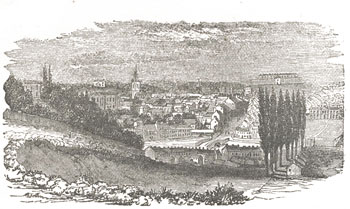Saint Patrick

Armagh
St. Patrick—How Ireland was first Christianized—Pagan Rome used providentially to promote the Faith—The Mission of St. Palladius—Innocent I. claims authority to found Churches and condemn Heresy—Disputes concerning St. Patrick's Birthplace—Ireland receives the Faith generously—Victorious—St. Patrick's Vision—His Roman Mission clearly proved—Subterfuges of those who deny it—Ancient Lives of the Saint—St. Patrick's Canons—His Devotion and Submission to the Holy See.
[A.D. 378—432.]

T has been conjectured that the great Apostle of Ireland, St. Patrick, was carried captive to the land of his adoption, in one of the plundering expeditions of the monarch Nial—an eminent instance of the overruling power of Providence, and of the mighty effects produced by causes the most insignificant and unconscious.
As we are not writing an ecclesiastical history of Ireland, and as we have a work of that nature in contemplation, we shall only make brief mention of the events connected with the life and mission of the saint at present; but the Christianizing of any country must always form an important epoch, politically and socially, and, as such, demands the careful consideration of the historian.
How and when the seed of faith was sown in ancient Erinn before the time of the great Apostle, cannot now be ascertained.
We know the silent rapidity with which that faith spread, from its first promulgation by the shores of the Galilean lake, until it became the recognized religion of earth's mightiest empire.
We know, also, that, by a noticeable providence, Rome was chosen from the beginning as the source from whence the light should emanate.
We know how pagan Rome, which had subdued and crushed material empires, and scattered nations and national customs as chaff before the wind, failed utterly to subdue or crush this religion, though promulgated by the feeblest of its plebeians.
We know how the material prosperity of that mighty people was overruled for the furtherance of eternal designs; and as the invincible legions continually added to the geographical extent of the empire, they also added to the number of those to whom the gospel of peace should be proclaimed.
